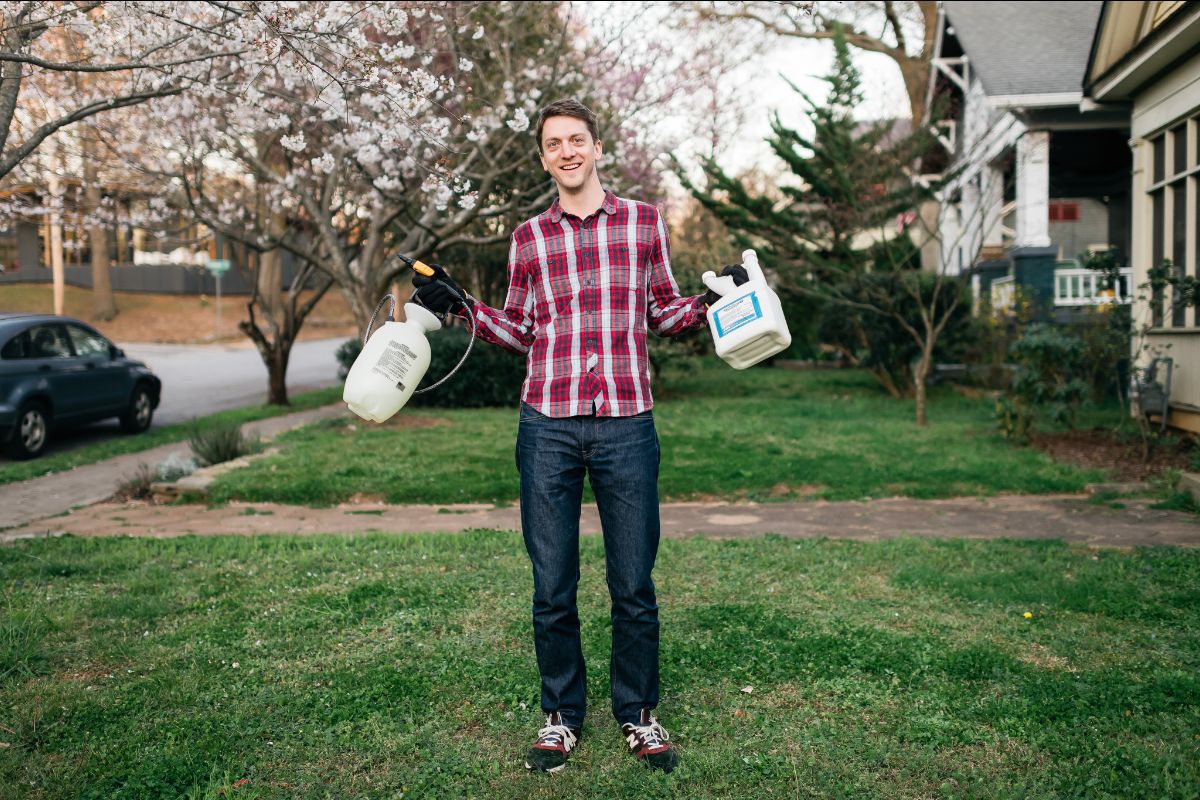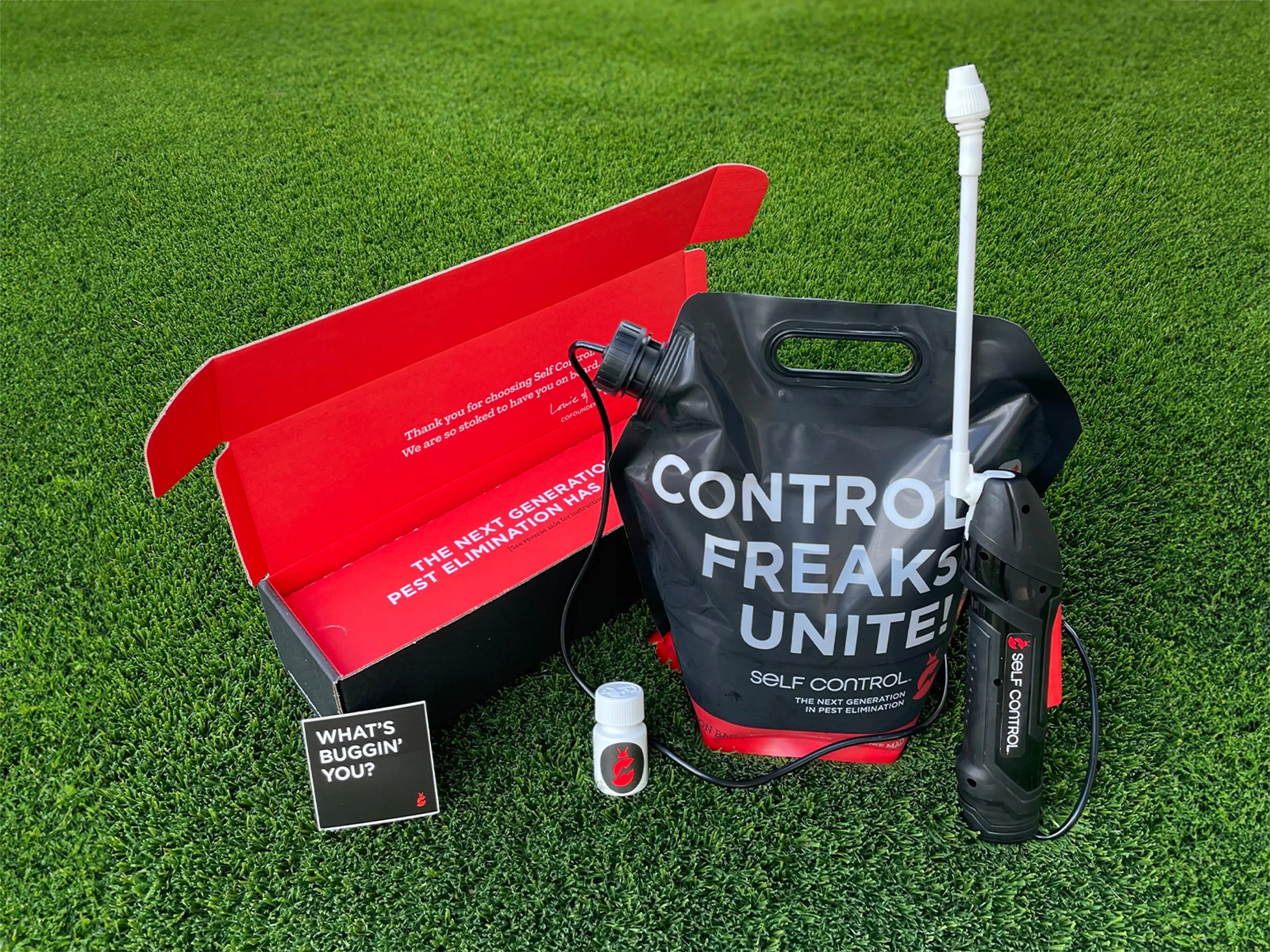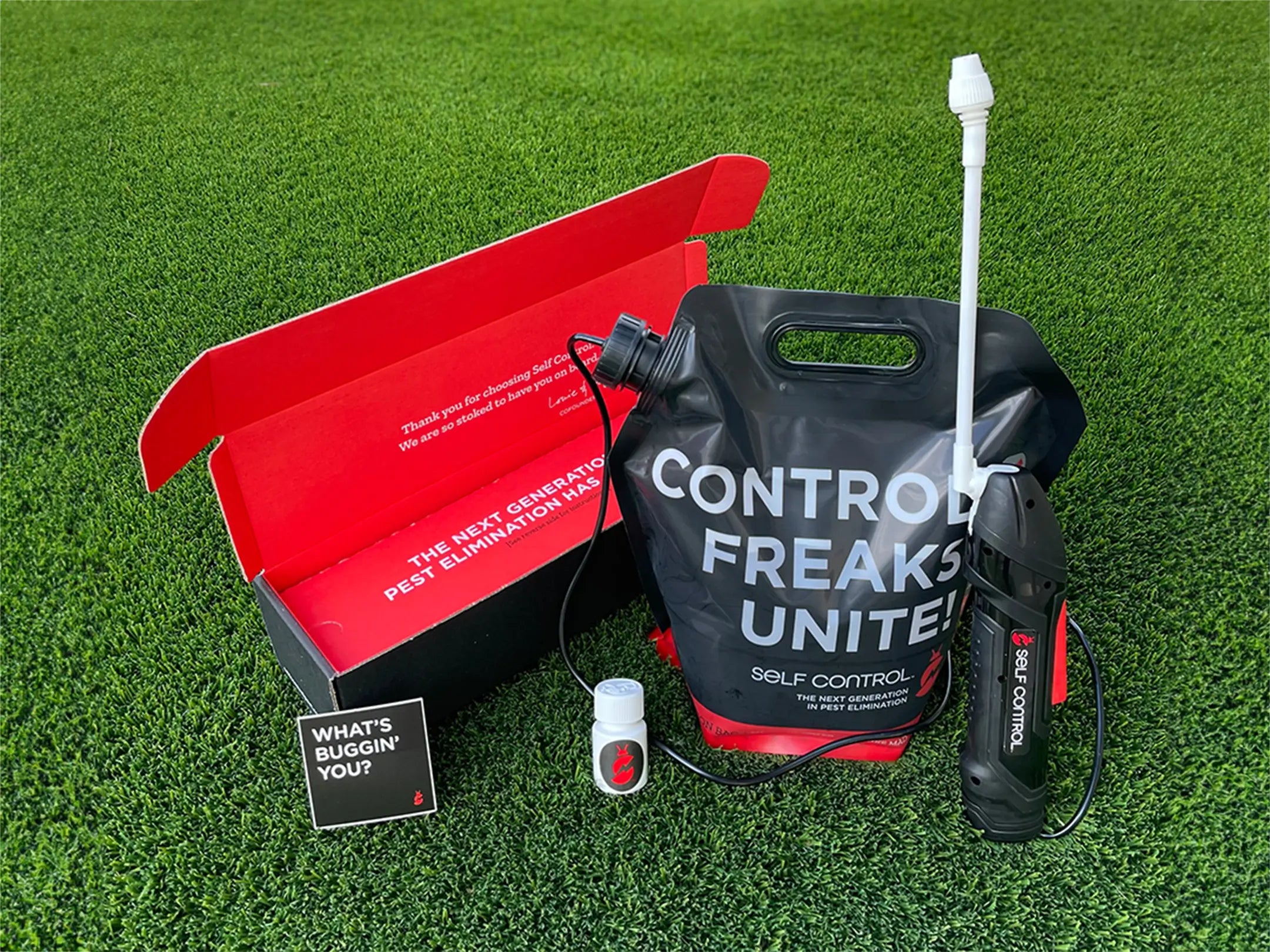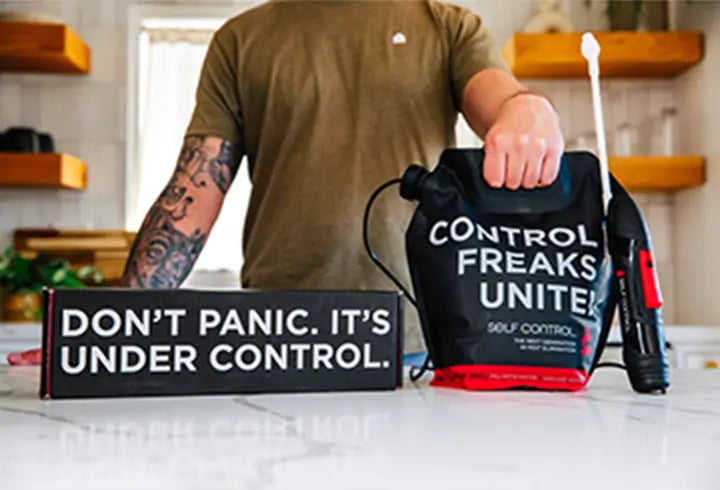
Pests have been a problem for humans since the beginning of time. They carry diseases, contaminate food, and damage other valuable property to the point they can cause serious economic hardship. The solution has always been to eliminate them; however, the question remains: Can you do pest control yourself?
Can You Do Pest Control Yourself?
Yes, you can do pest control yourself, especially when dealing with household pests like ants, cockroaches, and rodents. These pests are generally not very difficult to control, and many do-it-yourself pest control products can effectively eliminate them. If done correctly, DIY pest control can save money and be just as effective as hiring a professional.

However, one thing to remember is that do-it-yourself pest control is effective when the problem is small and localized. When dealing with a more serious or widespread problem, hiring a professional pest control company with the experience and resources to eliminate the pests properly is best.
Also, when using do-it-yourself pest control methods, follow the directions carefully and take all necessary safety precautions. Some products can be dangerous if used improperly. Ensure the pesticide is used in the right place and as directed by the manufacturer. You want to avoid putting your family or pets in danger by misusing a product.
How Do You Get Started?
Pests can be irritating, and getting rid of them can be challenging. However, with the right knowledge and products, you can carry out the process and save money. The following are some tips on how to get started:
Identify the Pest
The first step is to identify the type of pest you are dealing with. This will help you choose the right product and method of elimination. Most household pests can be controlled with baits, traps, or sprays available at your local hardware store. Some of the pests that can be controlled with these methods include:
- Ants: These pests are attracted to food and often enter homes searching for something to eat. They can destroy property and contaminate food. To get rid of ants, use baits or traps to lure them away from your home or business.
- Cockroaches: Cockroaches are one of the most common household pests. They are attracted to food and water and can spread diseases. In most cases, they can be controlled with pesticides that you just spray to kill them.
- Rodents: Mice and rats are attracted to food and often enter homes through small openings. They can contaminate food and spread diseases. They also destroy property by gnawing on wood and wires. To get rid of rodents, use traps or poison baits.
- Bed bugs: These pests are small, reddish-brown insects that live on the blood of humans and animals. They often enter homes through luggage or clothing. They irritate the skin and can cause an allergic reaction. To get rid of bed bugs, use special pesticides that are available at your local hardware store.
- Mosquitoes: These are small, flying insects that can spread diseases like malaria and the West Nile virus. They bite mostly at night and are attracted to standing water. To get rid of mosquitoes, remove standing water from around your home or business and use mosquito repellent when outdoors.
- Flies: Some of the most common household pests, flies are attracted to food and can spread diseases. They enter homes through open doors and windows. These pests can be controlled with special traps such as flypaper or fly traps.
- Bees and Wasps: These insects are attracted to sweet things like fruits and flowers. They can sting humans and animals and cause an allergic reaction. To get rid of bees and wasps, use special traps or pesticides that are designed to kill them.
Choose the Right Product
Once you have identified the pest, select a product designed to kill that particular insect or rodent. There are many different types of products available, so be sure to read the label carefully and follow the directions. Some of the most common products used include:

- Insecticides: These are chemicals that kill insects. They come in aeros, powders, and liquids. Select an insecticide designed to kill the type of pest you are dealing with. Be sure to follow the directions carefully to avoid harming people or animals.
- Rodenticides: These are chemicals that kill rodents. They come in different forms, including baits, traps, and powders. These products are designed to kill rats, mice, and other rodents. They come with instructions on how to use them safely.
- Pesticides: These are chemicals that kill both insects and rodents. They come in different forms, including baits, traps, and sprays. At times they are known as all-purpose pest control products and are very easy to find in stores.
- Herbicides: These are chemicals that kill plants. They come in different forms, including liquids, powders, and granules. They are used to kill weeds, grasses, and other plants. Remember that weeds are also classified as pests. If you have a problem with weeds, consider using a herbicide.
- Repellents: These are chemicals that keep pests away. They come in different forms, including liquids, powders, and aeros. They are primarily used to keep insects away from people or animals. Repellents are not designed to kill pests. They only keep them away from the area where they are applied.
- Traps: These are devices that are used to capture or kill pests. They mostly come in two forms: live traps and kill traps. Live traps capture animals so they can be released into the wild. Kill traps are designed to kill the animal.
Take Precautions
When using any type of pest control product, it is important to take precautions to avoid harming yourself or others or damaging your property. Here are a few tips to follow:
- Read the label carefully and follow the directions: Reading the label is very important. The label will tell you how to use the product safely. Follow the directions carefully to avoid any accidents.
- Wear protective clothing: When using pesticides or other chemicals, wear gloves, a mask, and protective clothing. This will help to keep the chemicals off your skin and out of your lungs.
- Keep children and pets away: Keep children and pets away from areas treated with pesticides or other chemicals. They could be harmed if they come in contact with the chemicals.
- Apply the product in a well-ventilated area: Ventilations help disperse the chemicals and keep them from being concentrated in one location.
- Avoid applying the product near food: All these products are toxic and should not be applied near food or places where food is prepared.
- Clean up thoroughly after using the product: Once you have finished using the product, clean up any tools or equipment you used. Wash your hands and clothing to remove any chemicals on them.
- Store the product in a safe place: Store the product in a cool, dry place out of the reach of children and pets. If you have any leftover product, dispose of it properly.
Environmental Best Practices for DIY Pest Control
The environment is one of the most important aspects to consider when doing your own pest control. Many people don't realize that the products they use to kill pests can also harm the environment. Here are a few tips to follow to make sure you are being environmentally responsible:

- Use products that are least toxic: Look for products that are least toxic to the environment. These products are usually made from natural ingredients and are not as harmful to the environment.
- Use mechanical or physical controls: These types of controls do not use chemicals and are, therefore, better for the environment. They include traps, barriers, and physical removal.
- Use biological controls: These are living organisms that kill or control pests. They include predators, parasites, and pathogens.
- Compost: Composting is a great way to get rid of food waste. It can also help to control pests since they will be attracted to food waste.
- Recycle: Recycling is a great way to reduce the amount of waste you produce. When you recycle, you are helping to reduce the amount of pollution in the environment, and you are also helping to conserve resources.
- Use green pest control products: Many of these products are considered green because they are made from natural ingredients and are not harmful to the environment. For instance, diatomaceous earth is a natural product that can be used to kill pests.
- Use cultural controls: These are practices that can be done to prevent pests from infesting your home or garden. They include things like crop rotation and using resistant plants.
When Should You Hire a Professional?
There are certain times when you should hire a professional to help you with your pest problem. No one wants to mess up and end up harming themselves, others, or their property. Here are a few times when you should hire a professional:
- When the problem is too big: If you have a serious pest problem, it is best to hire a professional. For instance, if you have a termite infestation, it is best to hire someone who specializes in termite control. The same should happen if you have a bed bug infestation.
- When you don't know what kind of pest you have: Some pests are challenging to identify. Examples of such pests include Carpenter ants and Powderpost beetles. If you can't identify the pest, it is best to hire a professional so that they can properly identify it and come up with the best course of treatment.
- When you don't know how to get rid of the pest: If you need to know how to get rid of the pest, it is best to hire a professional. This is especially true if the pest is difficult to control. For example, if you have a bed bug infestation, it is best to hire someone who specializes in bed bug control. You will avoid making the situation worse and increase your chances of getting rid of the pests.
- When the pest is resistant to over-the-counter products: Some pests are resistant to over-the-counter products. Examples of such pests include carpenter ants and German cockroaches. If you have a pest that is resistant to over-the-counter products, a professional will be able to help you.
- When you want to prevent pests: Remember that prevention differs from control. If you want to prevent pests, it is best to hire a professional. This is because professionals have the knowledge and experience to help you prevent pests.
Frequently Asked Questions
Is Doing Pest Control Hard?
Yes, sometimes pest control can be hard. There are many factors that you need to consider when carrying out the process, such as the type of pest, the severity of the infestation, and the area that is infested. However, if you master the basics of this process, it will be easier to do it yourself and save money in the long run.
Is It Safe to Do Pest Control Yourself?
Yes, it is safe to do pest control yourself if you know what you are doing. What you need to do is to read the labels of the products that you will use and follow the instructions carefully. You should also wear protective gear, such as gloves and a mask when using the products.
Is Spraying for Pests Worth It?
Yes, spraying for pests is worth it. This is because it is an effective way to get rid of pests. When spraying for pests, you are also preventing them from returning. Products that contain pyrethrin or permethrin are effective in killing pests and preventing them from returning.
What Are the Disadvantages of Doing Pest Control Yourself?
The main disadvantage is that it can be time-consuming. This is because you need to research the best products to use and the most effective way to use them.
Conclusion
Pest control can be challenging; however, it is possible to do it yourself. With a pro-grade DIY pest control such as Self Control Pest, remember to read the labels of the products that you will use and follow the instructions carefully. Also, ensure that you wear protective gear, such as gloves and a mask, to avoid harming yourself.



Comments (0)
Back to Critter Chronicles